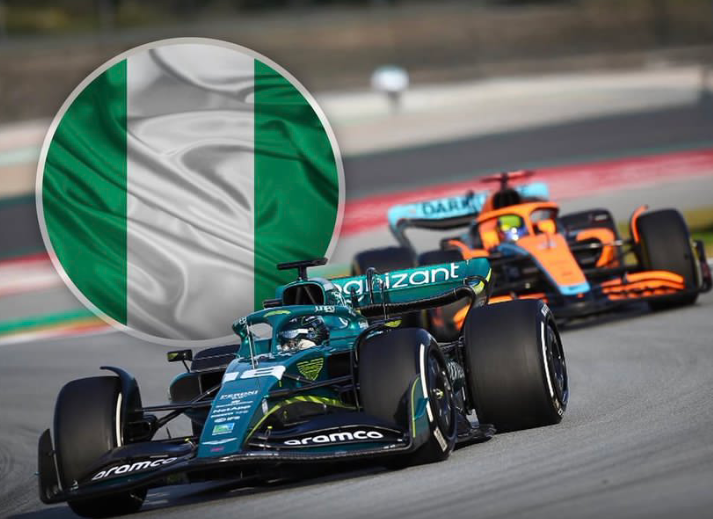

In a move that has electrified motorsport enthusiasts across Africa and beyond, Nigeria has officially announced its bid to host a Formula 1 Grand Prix in Abuja, marking what could become one of the most historic milestones in the country’s sporting history. The announcement was made earlier today by the Federal Ministry of Sports Development in collaboration with the Nigerian Motorsports Federation, signaling the nation’s serious intent to bring the world’s most prestigious racing event back to Africa for the first time since 1993.
The proposal, which has already been submitted to Formula One Management (FOM) and the Fédération Internationale de l’Automobile (FIA), outlines a bold plan to establish a state-of-the-art racing circuit in the capital city. If successful, Abuja would join an elite list of cities such as Monaco, Singapore, and Abu Dhabi that host F1 races, cementing Nigeria’s place on the global sporting map and igniting a new era for African motorsport. The bid comes at a time when Formula 1 has been exploring ways to expand its global reach, particularly into regions that have long been overlooked, and Africa has remained the only continent without a race on the calendar for over three decades.
According to sources within the Nigerian government, the Abuja F1 bid is backed by a public-private partnership that includes major local investors and international infrastructure firms. The proposed circuit, tentatively called the “Abuja International Street Circuit,” is said to combine the natural beauty of the city’s landscape with the high-speed thrills F1 is known for. Plans reveal a design that would snake through key parts of the Federal Capital Territory, offering scenic views of the Aso Rock and the National Mosque, while adhering strictly to FIA safety and technical standards.
Minister of Sports Development, Senator John Owan Enoh, described the bid as a defining moment for the country and the continent. “This is more than a sporting event — it’s a statement of intent,” he said at the press briefing. “Nigeria is ready to showcase its capacity, hospitality, and infrastructure to the world. We are not just hosting a race; we are inviting the world to experience Africa in motion.”
The potential economic benefits of hosting an F1 Grand Prix in Abuja are immense. Experts project that the event could inject billions of naira into the economy through tourism, hospitality, job creation, and international exposure. Thousands of visitors, including teams, sponsors, celebrities, and fans, would flock to the capital during race week, creating a boom in sectors ranging from aviation and accommodation to local entertainment and retail. Lagos, Port Harcourt, and other major cities are also expected to benefit from the spillover effects of global attention and investment.
Beyond economics, the cultural and symbolic significance of Nigeria’s F1 bid cannot be overstated. Since the last South African Grand Prix in 1993, Africa has been absent from the world’s premier motorsport calendar, despite its rich history in racing and car culture. For years, fans across the continent have clamored for Formula 1’s return to African soil, with rumors of potential races in Morocco, South Africa, and Egypt never materializing. Nigeria’s bold step, therefore, represents not just a national ambition but a continental dream.
F1 CEO Stefano Domenicali has previously expressed interest in bringing the sport back to Africa, describing it as a “personal priority” and a “moral obligation” for the global sport. Industry insiders say Nigeria’s bid could have come at the perfect time, given Formula 1’s current expansion into new markets such as Las Vegas, Qatar, and Saudi Arabia. A Grand Prix in Abuja would not only mark F1’s return to Africa but also introduce a vibrant new audience to the sport — one defined by youthful energy, creativity, and passion.
Public reactions to the announcement have been overwhelming. Social media exploded with excitement, with Nigerians celebrating the news under trending hashtags such as #F1Abuja, #NaijaGrandPrix, and #SpeedInTheCity. Enthusiasts, influencers, and celebrities have shared their support, calling the move “visionary” and “game-changing.” Some fans even began imagining what it would be like to see Lewis Hamilton, Max Verstappen, and Charles Leclerc racing through Abuja’s cityscape, with the roar of engines echoing against the backdrop of Aso Rock.
However, not everyone is convinced. Critics have raised concerns about infrastructure readiness, funding transparency, and the sustainability of such an ambitious project. Some have questioned whether Nigeria, with its ongoing economic challenges and infrastructural deficits, can deliver an event of Formula 1’s global standards. Others have called for careful planning to ensure that public funds are not misused or diverted in the process. The government, in response, has assured the public that the project would be largely financed through private sector partnerships, with minimal burden on taxpayers.
Urban planners and environmental experts are also emphasizing the need for a sustainable approach, suggesting that the proposed Abuja circuit should incorporate green technology, efficient transportation systems, and long-term community benefits beyond the race itself. There are discussions about integrating electric vehicle showcases, promoting eco-friendly tourism, and using the event as a platform to boost Nigeria’s automotive industry.
Despite the skepticism, optimism remains high. The Nigerian Motorsports Federation has already begun preliminary consultations with F1 representatives and international race engineers. Feasibility studies are underway, and reports indicate that a delegation from Formula 1 is expected to visit Abuja later this year to assess potential race sites and infrastructure. If approved, the inaugural Abuja Grand Prix could be scheduled as early as 2027, pending construction timelines and FIA certification.
The potential ripple effects of hosting F1 in Nigeria extend far beyond sports. It would spotlight African talent in engineering, logistics, design, and technology, while inspiring a new generation of young Africans to pursue careers in motorsport — from mechanics and drivers to event managers and media professionals. It could also open the door for Nigeria to host other international sporting and entertainment events, strengthening its global reputation as a hub of culture, innovation, and resilience.
As the world watches, Nigeria stands at the starting line of history. A successful bid would not only revive Africa’s place in the Formula 1 universe but also demonstrate that the continent is ready to compete, innovate, and inspire at the highest level of global sports. For millions of Nigerians and Africans who have long dreamed of hearing the thunder of F1 engines on their home soil, the Abuja Grand Prix bid represents hope — hope for progress, pride, and possibility.
From the dusty streets of Lagos to the polished highways of Abuja, conversations are already shifting gears. The engines of ambition are roaring, and Nigeria’s race toward global recognition has begun. Whether or not the bid succeeds, one thing is certain: the world has heard Nigeria’s signal loud and clear — Africa is ready for Formula 1, and the starting flag is about to drop.


